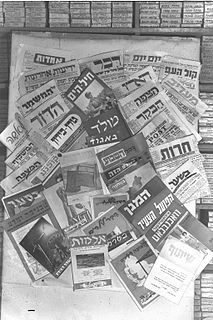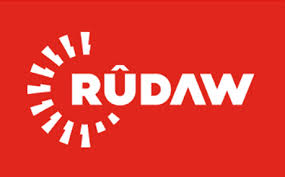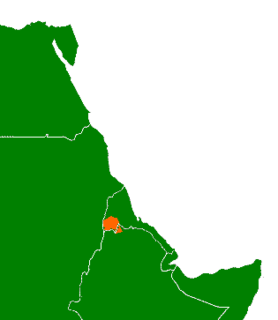Tigrinya language, is a Semitic language spoken by people of southern Eritrea and across the broader by people of Tigray region. Tigrinya is also spoken by groups of emigrants from these regions, including some Beta Israel.
The opening of the article is inaccurate. Free-to-air (FTA) is NOT carried on terrestrial radio signals or received with a standard antenna. These signals are sent from satellites in the Clarke belt using the Ku and C bands. A special receiver and antenna (dish) are required to receive these. These are mentioned later in the article, but the opening is misleading. The opening of the article is actually referring to Over-the-Air (OTA) television (TV).
The Media of Iran are privately and publicly owned but is subject to censorship. As of 2016, Iran had 178 newspapers, 83 magazines, 15,000 information sites and 2 million blogs. A special court has authority to monitor the print media and may suspend publication or revoke the licenses of papers or journals that a jury finds guilty of publishing anti-religious material, slander, or information detrimental to the national interest. The Iranian media is prohibited from criticizing the Islamic doctrines.

ArirangTV is a global, English-language television network based in Seoul, South Korea.The service is aimed at the overseas market, similar to DD India, WION, BBC World News, DW, France 24 and RT.It is operated by the Korea International Broadcasting Foundation and is financially supported by the Ministry of Culture, Sports and Tourism. The channel, which airs in 105 countries, is considered a public relations arm of the South Korean government.

Dubai Media Incorporated (DMI) is the official media organization of the government of Dubai. It was established in 2003 as a government-owned company comprising a number of print, radio and TV channels under its umbrella including: Dubai TV, Al Bayan, Sama Dubai TV, Dubai One, Dubai Sports, Dubai Racing, Dubai Zaman, Dubai Drama, Noor Dubai Radio & Noor Dubai TV, Dubai FM, Emarat Al Youm, Emirates 24/7, Tawseel and Masar Printing Press. Now renamed to DCN i.e. Dubai Channels Network in 2015.The chairman of the board of directors of DMI, Maktoum bin Mohammed bin Rashid Al Maktoum, is also the deputy ruler of Dubai.
The main languages spoken in Eritrea are Tigrinya, Tigre and Modern Standard Arabic. Linguistic demography is uncertain due to a lack of reliable official statistics. SIL Ethnologue estimates that as of 2010, there are 3,360,000 speakers of Tigrinya and 1,390,000 speakers of Tigre. The remaining residents primarily speak other languages from the Afroasiatic family, with a minority speaking Nilo-Saharan or Indo-European languages.
The Cambodian media sector is vibrant and largely unregulated. This situation has led to the establishment of numerous radio, television and print media outlets. Many private sector companies have moved into the media sector, which represents a significant change from many years of state-run broadcasting and publishing.
The media of Vietnam refers to the print, broadcast and online mass media available in Vietnam.

The mass media in Ethiopia consist of radio, television and the Internet, which remain under the control of the Ethiopian government, as well as private newspapers and magazines. Ten radio broadcast stations, eight AM and two shortwave, are licensed to operate in Ethiopia. The major radio broadcasting stations include Raido Ethiopia, Radio Fana a private station, Radio Voice of One Free Ethiopia, and the Voice of the Revolution of Tigray. The only terrestrial (broadcast) television networks are government owned and include Ethiopian Television and other regional stations. In keeping with government policy, radio broadcasts occur in a variety of languages including Amharic, Afaan Oromo, Tigrigna, and more. There are also many video sharing websites which are a popular way of getting information as well as entertainment in Ethiopia.

The media of Israel refers to print, broadcast and online media available in the State of Israel. The country boasts dozens of newspapers, magazines, and radio stations, which play an important role by the press in political, social and cultural life and cater it to a modern, developed and literate society.
The television industry in China includes high-tech program production, transmission and coverage. China Central Television is China's largest and most powerful national television station. By 1987, two-thirds of people in China had access to television, while today, over 3,000 channels are available in the country.
Algeria has more than 45 independent Arabic language and French language publications as well as 4 government-owned newspapers, but the government controls most printing presses and advertising. The Algerian newspapers with the largest circulations are Echourouk (1,800,000), Ennahar (1,600,000), El Khabar (1,000,000) and Quotidien d'Oran (700,000); all four are employee-owned. The government also owns all radio and television outlets, which provide pro-government programming. In 2004 and 2005, the government increased the access of Berber language and culture to both print and broadcast media.
The media of Syria consists primarily of television, radio, Internet, film and print. The national language of Syria is Arabic but some publications and broadcasts are also available in English and French. While television is the most popular medium in Syria, the Internet has become a widely utilized vehicle to disseminate content. Transcending all available media, the government seeks to control what Syrians see by restricting coverage from outside sources. Publications and broadcasts are monitored by members of the government. Syria is ranked as one of the most dangerous places in the world for journalists. There were 28 journalists killed in combat in 2012.
The Media of South Sudan is underdeveloped compared to many other countries, including fellow East African states like Kenya, Tanzania, and Uganda. Poor transportation infrastructure and entrenched poverty in the country inhibit both the circulation of newspapers, particularly in states located far from the capital of Juba, and the ability of media outlets to maintain regular coverage of the entire country.
Television in Saudi Arabia was introduced in 1964, however, dominated by just five major companies: Dubai TV, Middle East Broadcasting Center,SM Enterprise TV, Lebanese Broadcasting Corporation, Rotana and Saudi TV. Together, they control 80% of the pan-Arabee ENJ broadcasting market. Though private television stations cannot operate from Saudi soil, the country is a major market for pan-Arab satellite and pay-TV. Saudi investors are behind the major networks MBC, which is based in Dubai, and Emirates based OSN. Although satellite dishes have been officially banned since 1990, Saudi Arabia has the second highest satellite TV penetration in the Arab Region, at 97%, and there are 85 free-to-air satellite channels headquartered in Saudi Arabia.

Rudaw Media Network, also known as Rudaw, is a media group in Iraqi Kurdistan. It publishes in Kurdish, English, Arabic and Turkish. Rudaw Media Network also owns a weekly newspaper in the Sorani dialect with a circulation of 3,000, a Kurmanci-language version published in Europe, a website in Kurdish, English, Arabic and Turkish and a satellite TV station. The network is funded and supported by Rudaw Company and aims to impart news and information about Kurdistan and the Middle East.

Dimtsi Weyane is an Ethiopian television news channel headquartered in Mekelle, Ethiopia. Owned by Dimtsi Weyane Tigray P.L.C., it was launched in December 2018. The channel broadcasts programming mainly in Tigrinya with some programming in Amharic and English.
The Sultanate of Oman, established on August 9, 1970, is an absolute monarchy in which all the power resides with the Sultan. The government controls what information the media relays, and the law prohibits any criticism of the Sultan or government.









